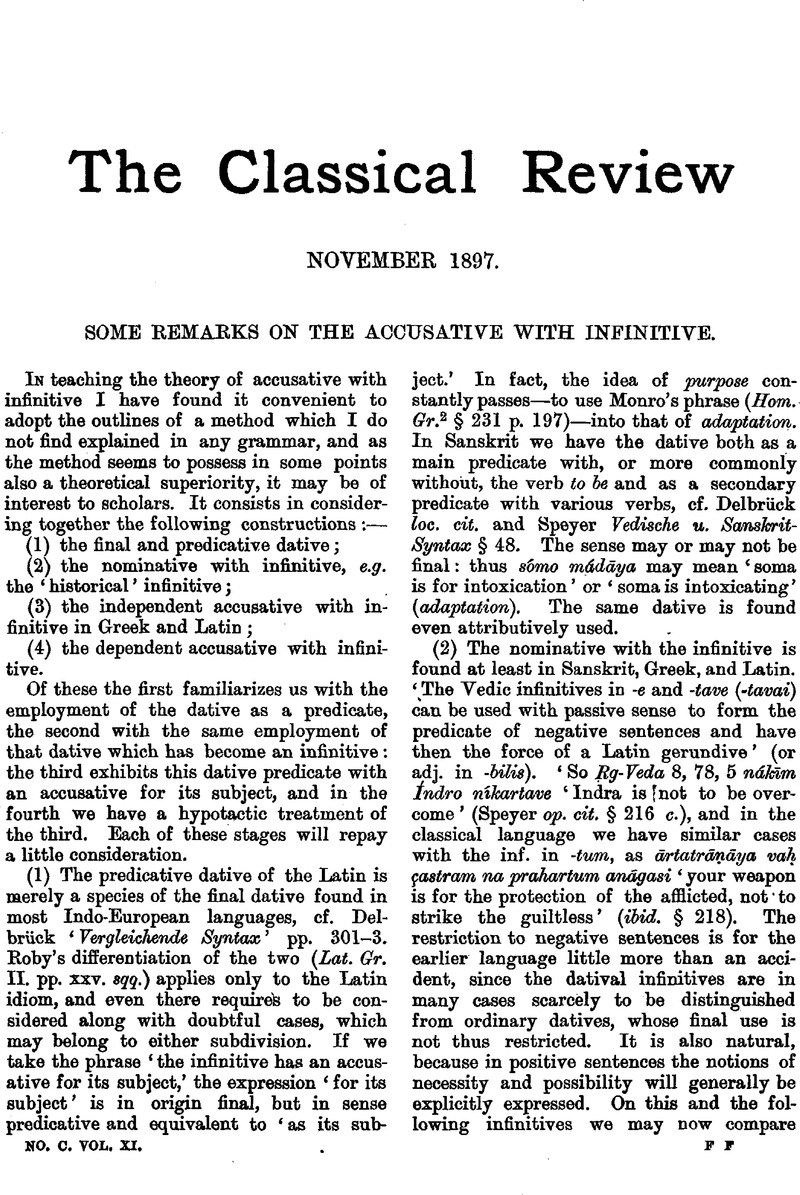No CrossRef data available.
Article contents
Some Remarks on the Accusative with Infinitive
Published online by Cambridge University Press: 27 October 2009
Abstract

- Type
- Review Article
- Information
- Copyright
- Copyright © The Classical Association 1897
References
page 374 note 1 If legimini = λεγμεναι.
page 375 note 1 Mr. Marindin writes to me that he regards τν κρυκα as an acc. of reference, the noun being taken out of its sentence : he compares Av. 651, ![]() : he compares also οῖδ σε τς εῖ, &c. : the sentence is then equivalent to δεινν γ' στν εἰ δ κρνξ κ.τ.λ. I do not find this inconsistent with the above, since this very acc. of reference would seem to be in its nature exclamatory.
: he compares also οῖδ σε τς εῖ, &c. : the sentence is then equivalent to δεινν γ' στν εἰ δ κρνξ κ.τ.λ. I do not find this inconsistent with the above, since this very acc. of reference would seem to be in its nature exclamatory.
page 375 note 2 The acc. after ν and μ and in oaths without these particles is of a similar nature. So also the phrases, ![]() .
.
page 377 note 1 The ablatival inff. in Sanskrit after purā, ā, &c, essentially identical with this, prove the great antiquity of the construction.
page 379 note 1 Not however to be confused with aposiopesis.
page 381 note 1 After a verb meaning ‘ explain ’ the optative might be again exact ; hence perhaps the use after ‘ say. ’
page 381 note 2 Cf. τς λγοι ; Goodwin, § 242.
page 382 note 1 The reporter in fact corresponds to the character in the drama, who when A says to B ‘ You hare insulted me ’ repeats with a glance at the audience ‘ He has insulted him,’ meaning that A says B has insulted him.


